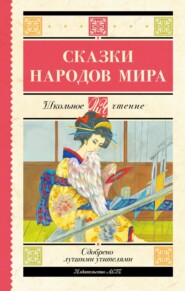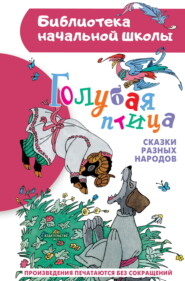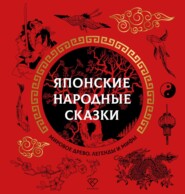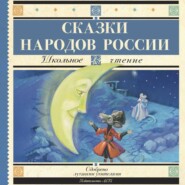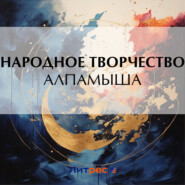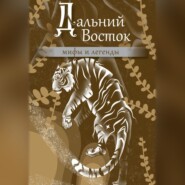По всем вопросам обращайтесь на: info@litportal.ru
(©) 2003-2025.
✖
English Fairy Tales. A1
Настройки чтения
Размер шрифта
Высота строк
Поля
English Fairy Tales. A1
Folk art (Folklore)
English Classics: Graded Readers
Кто на самом деле вошел в дом к трем медведям? Что случилось с двумя другими поросятами? Как мертвая рыба помогла кухарке стать невесткой барона? Узнайте ответы на эти вопросы и потренируйте английский язык с пособием от редакции Lingua!
В состав сборника вошли сказки в пересказе Джозефа Джекобса: «Джек и бобовый стебель», «Три поросенка», «Три медведя», «Молли Ваппи», «Рыба и кольцо» и «Старуха и поросенок».
Все сказки адаптированы для уровня А1, то есть для тех, кто только начинает изучать английский язык. После каждой сказки приводится словарик с самыми нужными словами. В конце книги вы найдете упражнения, которые помогут закрепить новые слова, проверить степень понимания прочитанного и повторить грамматику английского языка.
В формате PDF A4 сохранён издательский дизайн.
English Fairy Tales. A1
© А. А. Грек, адаптация, словарь, упражнения, 2023
© ООО «Издательство АСТ», 2023
Before-reading questions:
What is your favourite fairy tale? Try telling it to your reflection in a mirror. What is the most important thing in telling a fairy tale?
What is the difference between a fairy tale written by a single person and a folk tale? What do they have in common?
One of the most common narrative tricks in fairy tales is repetition. Fairy tale characters do the same thing at least thrice. Yet it is not a complete repetition: they do the same thing with small changes. So, the Wolf first comes to the first little pig, then to the second little pig and, in the end, to the third little pig. Try telling a story about your everyday life as if it was a fairy tale, repeating the same thing for at least three times, while adding slight changes to the story.
Jack and the Beanstalk
There lives a poor widow who has one son named Jack, and a cow named Milky-white. And all they have is the milk the cow gives every morning which they carry to the market and sell. But one morning Milky-white gives no milk and they don’t know what to do.
“What shall we do, what shall we do?” says the widow. She is unhappy and wants to cry.
“Cheer up, mother, I’ll go and get work somewhere,” says Jack.
“We tried that. Nobody wants you,” says his mother; “we must sell Milky-white.”
“All right, mother,” says Jack; “it’s market-day today, and I’ll soon sell Milky-white, and then we’ll see what we can do.”
So he takes the cow, and he goes. He meets a funny-looking old man who says to him: “Good morning, Jack.”
“Good morning to you,” says Jack, and he doesn’t know how the man knows his name.
“Well, Jack, and where are you going?” says the man.
“I’m going to the market to sell our cow.”
“Oh, you look the proper sort of boy to sell cows,” says the man; “I wonder if you know how many beans make five.”
“Two in each hand and one in your mouth,” says Jack.
“Right you are,” says the man, “and here are the beans,” he takes out of his pocket a number of strange-looking beans. “As you are so sharp,” says he, “I don’t mind doing a swop with you-your cow for these beans.”
“What!” says Jack; “the beans?”
“Ah! you don’t know what these beans are,” says the man; “if you plant them at night, by morning they grow right up to the sky.”
“Really?” says Jack; “it can’t be true.”
“Yes, that is so, and if it isn’t true you can have your cow back.”
“Right,” says Jack, and gives him Milky-white and takes the beans.
Then Jack goes back home, and as it isn’t very far it isn’t dusk by the time he gets to his door.
“Are you back, Jack?” says his mother; “I see you haven’t got Milky-white, so you sold her. How much do you get for her?”
“You’ll never guess, mother,” says Jack.
“Good boy! Five pounds, ten, fifteen, no, it can’t be twenty.”
“I tell you, you can’t guess, what do you say to these beans; they’re magical, plant them at night and-”
“What!” says Jack’s mother, “are you such a fool, such an idiot, as to give away my Milky-white, the best cow, for beans. Take that! Take that! Take that! And as for your precious beans here they go out of the window. And now go to bed. You will not eat, and you will not drink this night.”
So Jack goes upstairs to his little room in the attic. He is sad and sorry, to be sure. He is sorry because his mother screamed at him and because he is hungry.
At last he goes to sleep.
When he wakes up, the room looks so funny. The sun is shining into it, and all the rest is quite dark. So Jack jumps up and dresses himself and goes to the window. And what do you think he sees? the beans his mother threw out of the window are now a big beanstalk. It goes up and up and up till it reaches the sky. So the man said the truth after all!
The beanstalk grows up quite close to Jack’s window, so he opens it and jumps on to the beanstalk which is like a big ladder. So Jack climbs and he climbs and he climbs and he climbs and he climbs and he climbs and he climbs till at last he reaches the sky. And when he gets there he finds a long broad road going straight. So he walks along and he walks along and he walks along till he comes to a great big tall house, and on the doorstep there is a great big tall woman.
“Good morning, mum,” says Jack, quite polite. “Could you be so kind as to give me some breakfast.” For he didn’t have anything to eat, you know, the night before and is as hungry as a hunter.
“It’s breakfast you want, is it?” says the great big tall woman, “you will be breakfast if you don’t move off from here. My man is an ogre and there’s nothing he likes more than boys on toast. Go or he’ll soon be coming.”
“Oh! please mum, do give me something to eat, mum. I have nothing to eat since yesterday morning, really and truly, mum,” says Jack. “I may as well be cooked, as die of hunger.”
Well, the ogre’s wife isn’t such a bad sort, after all. So she takes Jack into the kitchen, and gives him a junk of bread and cheese and a jug of milk. But suddenly thump! thump! thump! the whole house begins to shake with the noise of someone coming.
“Oh my God! It’s my old man,” says the ogre’s wife, “what shall I do? Here, come quick and jump in here.” And she pushes Jack into the oven just as the ogre comes in.
He is a big one, to be sure. At his belt he has three calves, and he throws them down on the table and says: “Here, wife, cook me a couple of these for breakfast. Ah what’s this I smell?
Fee-fi-fo-fum,
I smell the blood of an Englishman,
Be he alive, or be he dead
Folk art (Folklore)
English Classics: Graded Readers
Кто на самом деле вошел в дом к трем медведям? Что случилось с двумя другими поросятами? Как мертвая рыба помогла кухарке стать невесткой барона? Узнайте ответы на эти вопросы и потренируйте английский язык с пособием от редакции Lingua!
В состав сборника вошли сказки в пересказе Джозефа Джекобса: «Джек и бобовый стебель», «Три поросенка», «Три медведя», «Молли Ваппи», «Рыба и кольцо» и «Старуха и поросенок».
Все сказки адаптированы для уровня А1, то есть для тех, кто только начинает изучать английский язык. После каждой сказки приводится словарик с самыми нужными словами. В конце книги вы найдете упражнения, которые помогут закрепить новые слова, проверить степень понимания прочитанного и повторить грамматику английского языка.
В формате PDF A4 сохранён издательский дизайн.
English Fairy Tales. A1
© А. А. Грек, адаптация, словарь, упражнения, 2023
© ООО «Издательство АСТ», 2023
Before-reading questions:
What is your favourite fairy tale? Try telling it to your reflection in a mirror. What is the most important thing in telling a fairy tale?
What is the difference between a fairy tale written by a single person and a folk tale? What do they have in common?
One of the most common narrative tricks in fairy tales is repetition. Fairy tale characters do the same thing at least thrice. Yet it is not a complete repetition: they do the same thing with small changes. So, the Wolf first comes to the first little pig, then to the second little pig and, in the end, to the third little pig. Try telling a story about your everyday life as if it was a fairy tale, repeating the same thing for at least three times, while adding slight changes to the story.
Jack and the Beanstalk
There lives a poor widow who has one son named Jack, and a cow named Milky-white. And all they have is the milk the cow gives every morning which they carry to the market and sell. But one morning Milky-white gives no milk and they don’t know what to do.
“What shall we do, what shall we do?” says the widow. She is unhappy and wants to cry.
“Cheer up, mother, I’ll go and get work somewhere,” says Jack.
“We tried that. Nobody wants you,” says his mother; “we must sell Milky-white.”
“All right, mother,” says Jack; “it’s market-day today, and I’ll soon sell Milky-white, and then we’ll see what we can do.”
So he takes the cow, and he goes. He meets a funny-looking old man who says to him: “Good morning, Jack.”
“Good morning to you,” says Jack, and he doesn’t know how the man knows his name.
“Well, Jack, and where are you going?” says the man.
“I’m going to the market to sell our cow.”
“Oh, you look the proper sort of boy to sell cows,” says the man; “I wonder if you know how many beans make five.”
“Two in each hand and one in your mouth,” says Jack.
“Right you are,” says the man, “and here are the beans,” he takes out of his pocket a number of strange-looking beans. “As you are so sharp,” says he, “I don’t mind doing a swop with you-your cow for these beans.”
“What!” says Jack; “the beans?”
“Ah! you don’t know what these beans are,” says the man; “if you plant them at night, by morning they grow right up to the sky.”
“Really?” says Jack; “it can’t be true.”
“Yes, that is so, and if it isn’t true you can have your cow back.”
“Right,” says Jack, and gives him Milky-white and takes the beans.
Then Jack goes back home, and as it isn’t very far it isn’t dusk by the time he gets to his door.
“Are you back, Jack?” says his mother; “I see you haven’t got Milky-white, so you sold her. How much do you get for her?”
“You’ll never guess, mother,” says Jack.
“Good boy! Five pounds, ten, fifteen, no, it can’t be twenty.”
“I tell you, you can’t guess, what do you say to these beans; they’re magical, plant them at night and-”
“What!” says Jack’s mother, “are you such a fool, such an idiot, as to give away my Milky-white, the best cow, for beans. Take that! Take that! Take that! And as for your precious beans here they go out of the window. And now go to bed. You will not eat, and you will not drink this night.”
So Jack goes upstairs to his little room in the attic. He is sad and sorry, to be sure. He is sorry because his mother screamed at him and because he is hungry.
At last he goes to sleep.
When he wakes up, the room looks so funny. The sun is shining into it, and all the rest is quite dark. So Jack jumps up and dresses himself and goes to the window. And what do you think he sees? the beans his mother threw out of the window are now a big beanstalk. It goes up and up and up till it reaches the sky. So the man said the truth after all!
The beanstalk grows up quite close to Jack’s window, so he opens it and jumps on to the beanstalk which is like a big ladder. So Jack climbs and he climbs and he climbs and he climbs and he climbs and he climbs and he climbs till at last he reaches the sky. And when he gets there he finds a long broad road going straight. So he walks along and he walks along and he walks along till he comes to a great big tall house, and on the doorstep there is a great big tall woman.
“Good morning, mum,” says Jack, quite polite. “Could you be so kind as to give me some breakfast.” For he didn’t have anything to eat, you know, the night before and is as hungry as a hunter.
“It’s breakfast you want, is it?” says the great big tall woman, “you will be breakfast if you don’t move off from here. My man is an ogre and there’s nothing he likes more than boys on toast. Go or he’ll soon be coming.”
“Oh! please mum, do give me something to eat, mum. I have nothing to eat since yesterday morning, really and truly, mum,” says Jack. “I may as well be cooked, as die of hunger.”
Well, the ogre’s wife isn’t such a bad sort, after all. So she takes Jack into the kitchen, and gives him a junk of bread and cheese and a jug of milk. But suddenly thump! thump! thump! the whole house begins to shake with the noise of someone coming.
“Oh my God! It’s my old man,” says the ogre’s wife, “what shall I do? Here, come quick and jump in here.” And she pushes Jack into the oven just as the ogre comes in.
He is a big one, to be sure. At his belt he has three calves, and he throws them down on the table and says: “Here, wife, cook me a couple of these for breakfast. Ah what’s this I smell?
Fee-fi-fo-fum,
I smell the blood of an Englishman,
Be he alive, or be he dead







